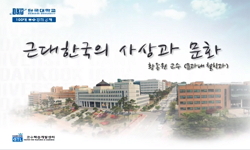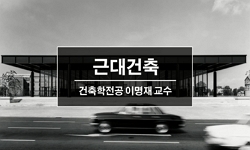본 연구는 근대 동아시아 삼국(한·중·일)을 대표하는 여성이론가 나혜석, 딩링, 히라츠카 라이초우의 생애를 살펴본 후 임신과 출산을 겪으면서 발표했던 그들의 ‘모성’관련 글을 고찰�...
http://chineseinput.net/에서 pinyin(병음)방식으로 중국어를 변환할 수 있습니다.
변환된 중국어를 복사하여 사용하시면 됩니다.
- 中文 을 입력하시려면 zhongwen을 입력하시고 space를누르시면됩니다.
- 北京 을 입력하시려면 beijing을 입력하시고 space를 누르시면 됩니다.

나혜석 · 딩링 · 히라츠카 라이초우의 ‘모성’인식 비교 고찰 = A Comparative Study on 'Motherhood' Perception of Na Hye Suk, Dingling, and Hiratsuka Raichou
한글로보기https://www.riss.kr/link?id=A105456256
- 저자
- 발행기관
- 학술지명
- 권호사항
-
발행연도
2018
-
작성언어
Korean
-
주제어
근대 ; 모성 ; 나혜석 ; 히라츠카 라이초우 ; 딩링 ; 근대국민국가 ; Modern ; Motherhood ; Na Hye-seok ; Hiratsuka Raichou ; Dingling ; Modern Nation-state
-
등재정보
KCI등재
-
자료형태
학술저널
-
수록면
193-219(27쪽)
-
KCI 피인용횟수
0
- DOI식별코드
- 제공처
-
0
상세조회 -
0
다운로드
부가정보
본 연구는 근대 동아시아 삼국(한·중·일)을 대표하는 여성이론가 나혜석, 딩링, 히라츠카 라이초우의 생애를 살펴본 후 임신과 출산을 겪으면서 발표했던 그들의 ‘모성’관련 글을 고찰하고 비교해보았다. 동아시아 삼국의 여성들은 식민, 반식민, 제국이라는 정치경제적 상황에 구속받으면서 사회문화적 환경 속에서 삶을 영위했다. 그리고 사회문화적 삶은 전통과 근대성이 교차하면서 영향을 미쳤을 것이다. 따라서 본 연구에서 다룬 3인의 여성들의 인식, 특히 모성관은 근대의 변동이 만들어내는 정치경제적 요소와 사회 문화적 환경에 영향을 받았다고 할 수 있다. 삼국 ‘여성’들의 선택지는 근대가 갖는 한계와 가능성을 동시에 드러내 보여주고 있다. 겉으로 보기에 자연스러운 여성의 출산, 수유능력과 육아에 대한 책임 사이의 연계성 때문에, 그리고 인간의 어린 시절은 광범위한 보호가 필요하기 때문에 여성의 어머니 노릇은 당연한 것으로 여겨진다. 따라서 여성의 어머니 노릇은 성별노동 분업의 몇 안되는 보편적이고 지속적인 요소로 간주되어 여성의 ‘장소’를 ‘자연스럽게’ 규정하는 것처럼 보이게 한다. 그러나 근대의 산물인 자아를 갖춘 여성 나혜석과 히라츠카는 이 어머니 노릇을 하나의 질곡(딜레마)로 받아들인다. 나혜석은 강렬한 자아를 갖춘 여성이지만 이 질곡을 사회적으로 해결할 수 있는 상황에 놓여있지 않았다. 때문에 자신의 글에 대한 대응을 비슷한 처지의 조선 여성들에게 기대했지만 반박의 글이 한 남성에게서 나오는데서 그치고 더 이상의 진전이 없었다. 히라츠카는 이전에 어머니 되기에 대한 소회를 밝혔던 일본 여성들이 이미 존재하는 상황에서 논의를 전개하였으며 ‘어머니 노릇’을 온전히 받아들인다. 어머니 노릇을 받아들인 여성이 겪어야만 하는 현실적 고민을 해결하기 위한 주체로 ‘국가’를 들고 있으며 이후 국가의 모성 보호를 주장하게 된다. 딩링은 이미 아이가 있는 위만전이 남편의 사후 근대적 자아에 눈뜨기 때문에 자아와 모성의 갈등을 겪을 여지가 없다. 이미 존재하는 아이들을 지켜야 하는 여성 위만전은 아이들을 망국민으로 만들지 않기 위하여 ‘국가’건설에 매진하고자 한다. 그리고 혁명사업에 일찍이 뛰어든 추근(秋瑾)과 같은 여성처럼 결코 남성들에게 지지 않을 것이라고 말한다. 딩링의 어머니 위만전은 딩링에게 추근의 이야기를 자주 들려주었으며 측천무후를 흠모하는 여성이었다. 그녀에게 모성은 개인적 과제가 아니며 자녀 역시도 근대적 가족 안에서 자라나야할 대상은 아니었던 것 같다.
다국어 초록 (Multilingual Abstract)

The present study examines the life of female theorists Na Hye-seok, Dingling, and Hiratsuka Raichou, who represent the three modern East Asian countries (Korea, China, and Japan), and examines and contrasts their maternity-related articles published ...
The present study examines the life of female theorists Na Hye-seok, Dingling, and Hiratsuka Raichou, who represent the three modern East Asian countries (Korea, China, and Japan), and examines and contrasts their maternity-related articles published during their pregnancy and childbirth. Women in these three countries have been living in a socio-cultural environment in which they were restrained by the political and economic conditions of colonization, anti-colonization, and imperialism. Their lives under such circumstances would have also posed influences as tradition and modernity intersected. Therefore, it can be said that the perception of the three women in this study, especially in regards to maternity, was influenced by the political and economic factors as well as the socio-cultural environment created by the changes in the modern era. The choices given to the ‘women’ simultaneously reveals the limitations and possibilities of modernity. Due to the connection between seemingly natural birth-giving, the ability to feed, and the responsibility for childcare, and, due to the extensive care and protection required for the children, women’s motherhood seems to be considered very natural. Thus, the motherhood of women is regarded as one of the few universal and ongoing elements of gender division in labor, making it appear that women’s ‘place’ of being is prescribed ‘naturally’. However, Na Hye-seok and Hiratsuka, who possessed ego as the product of modernity, accepted this motherhood as fetters, or a dilemma. While Na Hye-seok was a woman with a strong self-consciousness, she was not in a position to shake off her bonds in a social way. Because of this, she wrote to expect responses from other Korean women in a similar position. Her progress stopped after she received refutation only from men. Hiratsuka engaged in discussions in a context wherein Japanese women, who had previously expressed their impressions on becoming mothers, already existed. Hiratsuka fully embraced the concept of “motherhood.” She mentioned the ‘state’ as the subject to resolve the real problems of women who accepted motherhood, and further advocated the protection of maternity by the state. Dingling had no place to suffer conflicts of ego and maternity, as her mother Yu Man Zhen, who had already had a child, found her ego after her husband’s death. Yu Man Zhen, a woman who has to protect her existing children, strived to contribute to the building of ‘China’ as she did not want their children to become a ruined people. She also mentioned she would never lag behind men, just like Qiu Jin, who had joined the revolution earlier. Dingling's mother, Yu Man Zhen, often told Dingling the stories of Qiu Jin, and was an admirer of Wu Zetian. To her, motherhood was not a personal burden, nor were her children an object to grow up in a modern family.
참고문헌 (Reference)
1 최은희, "한국개화여성열전" 조선일보사 1991
2 권숙인, "일본제국시대 (1868-1945)의 여성의 지위 : 정치적 보수주의와 “양처현모” 이념의 대두" 30 (30): 1997
3 우에노 지즈코, "위안부를 둘러싼 기억의 정치학" 2014
4 임우경, "식민지 여성과 민족/국가 상상" 여이연 2004
5 낸시 초도로우, "모성의 재생산" 한국심리치료연구소 2008
6 문정희, "모던·혼성" CAS한국미술연구소 2014
7 김태신, "라훌라의 사모곡 상" 한길사 1991
8 이선이, "딩링 중국여성주의의 여정" 한길사 2015
9 나혜석, "나혜석편 경희(외)" 범우 2006
10 나혜석, "나혜석편 경희(외)" 범우 2006
1 최은희, "한국개화여성열전" 조선일보사 1991
2 권숙인, "일본제국시대 (1868-1945)의 여성의 지위 : 정치적 보수주의와 “양처현모” 이념의 대두" 30 (30): 1997
3 우에노 지즈코, "위안부를 둘러싼 기억의 정치학" 2014
4 임우경, "식민지 여성과 민족/국가 상상" 여이연 2004
5 낸시 초도로우, "모성의 재생산" 한국심리치료연구소 2008
6 문정희, "모던·혼성" CAS한국미술연구소 2014
7 김태신, "라훌라의 사모곡 상" 한길사 1991
8 이선이, "딩링 중국여성주의의 여정" 한길사 2015
9 나혜석, "나혜석편 경희(외)" 범우 2006
10 나혜석, "나혜석편 경희(외)" 범우 2006
11 나혜석, "나혜석편 경희(외)" 범우 2006
12 나혜석, "나혜석편 경희(외)" 범우 2006
13 이구열, "그녀, 불꽃같은 생애를 그리다 나혜석 “에미는 선각자였느니라”" 서해문집 2011
14 香內信子, "資料母性保護論爭" ドメス出版 1988
15 郭長海, "秋瑾" 長春出版社 1997
16 平塚らいてう, "母性保護問題に就いて再び與謝野晶子に寄す" 3 (3): 1918
17 林語堂, "林語堂文選" 中國廣播電視出版社 1990
18 平塚らいてう, "平塚らいてう著作集2" 大月書店 1983
19 平塚らいてう, "平塚らいてう著作集2" 大月書店 1983
20 平塚らいてう, "平塚らいてう著作集2" 大月書店 1983
21 丁玲, "丁玲自專" 江蘇文藝出版社 1996
22 丁玲, "丁玲文集第一卷" 湖南人民出版社 1983
23 丁玲, "丁玲文集" 湖南人民出版社 1984
24 馬雪峰, "丁玲の家庭観の背景についてー父系の基礎資料を中心に 『東洋大学大学院紀要" 45 : 2008
동일학술지(권/호) 다른 논문
-
迁徙的民族、古朴的女神神话与原生性文化:以中国云南少数民族女性神话为中心
- 한국여성사학회
- Li lian
- 2018
- KCI등재
-
- 한국여성사학회
- 김창현
- 2018
- KCI등재
-
- 한국여성사학회
- 한희숙
- 2018
- KCI등재
-
민주주의적 모성: 벤자민 스팍의 『육아상식』과 민주주의적 이상
- 한국여성사학회
- 이남희
- 2018
- KCI등재
분석정보
인용정보 인용지수 설명보기
학술지 이력
| 연월일 | 이력구분 | 이력상세 | 등재구분 |
|---|---|---|---|
| 2026 | 평가예정 | 재인증평가 신청대상 (재인증) | |
| 2020-01-01 | 평가 | 등재학술지 유지 (재인증) |  |
| 2017-01-01 | 평가 | 등재학술지 선정 (계속평가) |  |
| 2016-01-01 | 평가 | 등재후보학술지 유지 (계속평가) |  |
| 2015-01-01 | 평가 | 등재후보학술지 유지 (계속평가) |  |
| 2013-01-01 | 평가 | 등재후보 1차 FAIL (등재후보1차) |  |
| 2012-01-01 | 평가 | 등재후보 1차 PASS (등재후보1차) |  |
| 2011-01-01 | 평가 | 등재후보학술지 유지 (등재후보1차) |  |
| 2010-01-01 | 평가 | 등재후보학술지 유지 (등재후보2차) |  |
| 2009-01-01 | 평가 | 등재후보 1차 PASS (등재후보1차) |  |
| 2007-01-01 | 평가 | 등재후보학술지 선정 (신규평가) |  |
학술지 인용정보
| 기준연도 | WOS-KCI 통합IF(2년) | KCIF(2년) | KCIF(3년) |
|---|---|---|---|
| 2016 | 0.5 | 0.5 | 0.53 |
| KCIF(4년) | KCIF(5년) | 중심성지수(3년) | 즉시성지수 |
| 0.59 | 0.56 | 1.524 | 0 |




 KCI
KCI KISS
KISS






